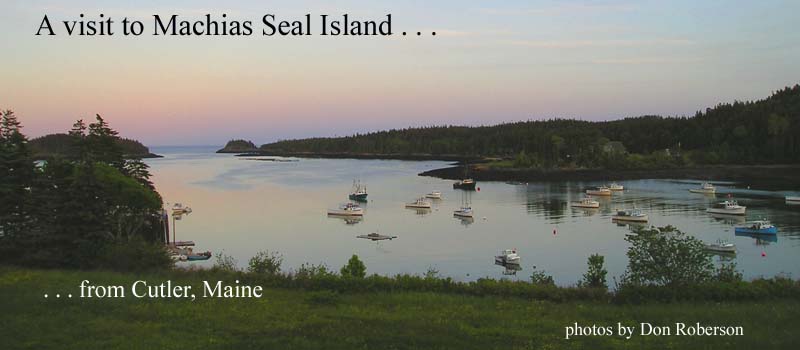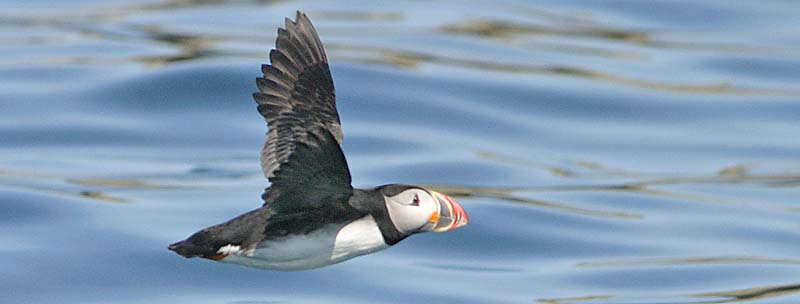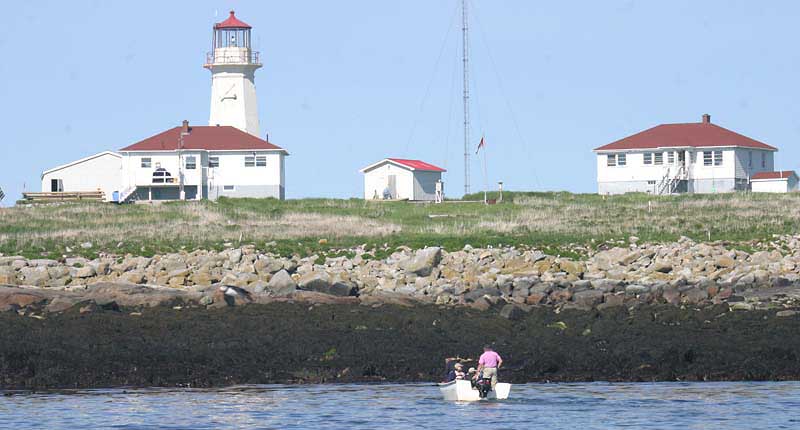| |
In
June 2007 Rita and I, along with our friends Marylee Bomboy & John
Van de Graaff, visited Machias Seal Island — a famed seabird colony off
the coast of Maine. We reserved spots with Captain Andrew Patterson's boat
out of Cutler, Maine, long in advance. There are only a limited number
of permits to land on Machias Seal Island — indeed, during my prior
visit in 1981 the boat just circled the island — so we wanted to assure
a spot on a day when landing was permitted [one cannot predict the
weather six months in advance, so nothing is guaranteed; a fair number
of trips with permits still cannot land due to weather]. We elected to
stay at Little River Inn, a bed & breakfast hotel with a view of the harbor (above), and within walking distance of the boat launch.
As
one leaves the Cutler harbor, you pass the lighthouse (below left; now
deactivated but a potential bed & breakfast opportunity) and such
birds as Common Eider (below right). |
|
|
|
Machias
Seal Island is ten miles offshore in the vast Atlantic. Much of the
ocean on the way out was birdless, but one could tell the island was
near when Atlantic Puffins (above) began passing our ship.
Finally
the headlands of the island are reached (below left, with a colony of
Common Murre). It is no easy feat to land. Rather, one is transferred
to small skiff and rowed ashore, landing on the rock among slippery
kelp with the assistance of well-anchored rope railings.
Finally,
our entire boatload is ashore on this carefully managed wildlife
refuge. Although the United States and Canada dispute ownership, it is
the Canadian Wildlife Service than operates the refuge with scientists
from both nations. |
|
|
|
|
The
alcids are suddenly all around, zipping by the lighthouse or
sun-bathing on the rocks (above). Despite their seeming tameness,
though, they are sensitive to humans coming too close and will scatter
upon approach. Therefore, visitors are restricted to central research
centre when not engaged in viewing or photography from one of four
designated blinds. It is the views from those blinds that are
spectacular. One can watch the birds arriving and departing, scuttling
into breeding burrows under the rocks, engaging in preening or
courtship — and all with a backdrop of the sea and (in lower right) a
view of the murre colony in the distance. |
|
|
|
|



